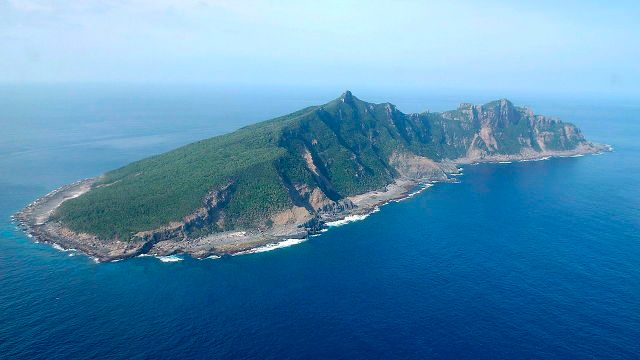SUMMARY
This is AI generated summarization, which may have errors. For context, always refer to the full article.

TOKYO, Japan – Japan warned Tuesday that China’s “dangerous acts” over territorial claims in the East China Sea could lead to “unintended consequences” in the region, as fears grow of a potential military clash.
The comments appeared in an annual defense white paper approved by Prime Minister Shinzo Abe’s cabinet, with the report heaping criticism on Beijing’s unilateral declaration of an Air Defense Identification Zone (ADIZ) late last year.
The ADIZ – which overlaps on territory claimed by Japan – sparked regional criticism as well as condemnation from Washington, while commentators have voiced concern over the possibility of an armed conflict between the Asian powers.
Tokyo’s paper noted that China’s military budget had quadrupled over the past decade on the back of an “increasingly severe” security environment.
“Japan is deeply concerned about the establishment of ‘the East China Sea ADIZ’ which is a profoundly dangerous act that… escalates the situation and may cause unintended consequences” in the region, the 505-page paper said.
The zone required aircraft flying through China’s zone to identify themselves and maintain communication with authorities, but it was not a claim of sovereignty.
Chinese vessels and aircraft have regularly approached an East China Sea archipelago claimed by both countries after Tokyo nationalized some of the chain in 2012.
The strategically important islands, believed to harbor vast natural resources below their seabed, are called the Diaoyu by China and Senkaku in Japan.
In a confrontation earlier this year, Tokyo said that two Chinese fighter jets flew within 30 meters (100 feet) of its aircraft in an area where the nations’ air defense zones overlap.
Beijing responded that it was Japanese military planes that flew dangerously close to its aircraft.
Several Southeast Asian nations are also at loggerheads with China over separate territorial disputes in the South China Sea.
Relations between China and Vietnam plunged to their lowest point in decades when Beijing moved a deep-sea oil rig into disputed waters in the South China Sea in early May, triggering deadly riots in Vietnam.
“With respect to conflicts over maritime interests, China has adopted assertive measures, including attempting to alter the status quo by coercive measures,” the paper said.
“These measures include dangerous acts that could cause unintended consequences and they raise concerns over China’s future direction,” it added.
‘Serious destabilizing factor’
The paper, which is an assessment of Japan’s thinking on defense matters, also warned that an unpredictable North Korea “repeatedly uses militarily provocative words and actions.”
“Such military trends in North Korea constitute a serious destabilizing factor to the security not only of Japan, but of the entire region and the international community,” the paper said.
The isolated country last week fired 4 short-range projectiles towards the sea in the latest of a series of missile, rocket and artillery tests, amid fears about Pyongyang’s nuclear programme.
Tokyo’s report briefly mentioned other territorial disputes including a row over Seoul-controlled islets – called Dokdo by South Korea and Takeshima by Japan – and the Russian-administered Kuril Islands, which Tokyo calls the Northern Territories.
“These territorial issues remain unresolved,” it said.
South Korea immediately slammed Japan’s “ludicrous” claim to the set of disputed islets, warning it would further strain relations.
Japan’s military budget had been on the decline since 2002, but it took an upward turn, rising 2.2% in the current fiscal year, according to the paper.
Abe has vowed to boost spending on Japan’s Self Defense Forces, with Tokyo last month loosening the bonds on its powerful military, proclaiming the right to go into battle in defense of allies.
The move was a highly controversial shift in the nation’s pacifist stance, while Abe’s government has also lifted a self-imposed ban on weapons exports.
His cabinet has agreed to spend 24.7 trillion yen ($240 billion) between 2014 and 2019 on various hardware, including drones, submarines, fighter jets and amphibious vehicles. – Rappler.com
Add a comment
How does this make you feel?
There are no comments yet. Add your comment to start the conversation.